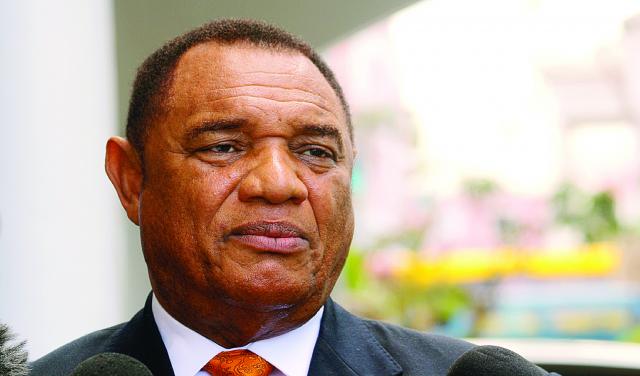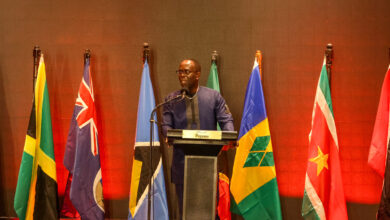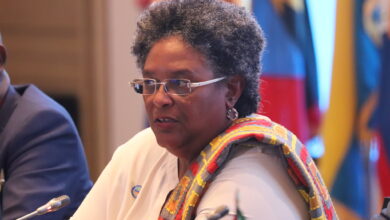NASSAU, Bahamas, CMC – The three-day meeting of Commonwealth Education Ministers has opened here with Prime Minister Perry Christie calling for the 53-member grouping to “identify realistic and practical measures to ensure that every Commonwealth country is able to provide a world class education”.
“Education transforms lives. When we realise that education is the most powerful way of improving a person’s life, we will be more deliberate in our efforts to not only provide access to quality education, but to find ways to ingrain into the psyche of individuals and whole communities the value of an education.”
He told the conference that the Education for All Global Monitoring Report stated that “if all students left school with basic reading skills, 171 million people could be lifted out of poverty”.
He said the three-day meeting presents the opportunity for the Commonwealth to develop strategies to empower its citizens and member countries towards educational success, and positive social, economic and cultural outcomes.
“The fact of the matter is that greater emphasis must be placed on education. Not merely at the policy level but to ensure that policies become real, and are enacted. Too often, policies look good on paper but do not translate into substantive action.
“I am certain that the challenges my country faces as it relates to education are similar to many of the countries represented here this evening. Each level of education – be it pre-school, primary, high school or tertiary – has its unique set of challenges. But thinking back to the global statistics I shared earlier, what I think should concern most of us, is the graduation rate of those students leaving high school,” Prime Minister Christie told the opening ceremony attended by outgoing Commonwealth Secretary General Kamalesh Sharma.
Chrisitie said whether in terms of crime prevention, employment and earning potential, or life expectancy, High-School is a milestone through which everyone must pass to begin fulfilling his or her true potential.
“Quality education can be measured by “its relevance to employment and its usefulness in assisting young people in the transition to full adulthood, active citizenship and productive and gainful employment.”
The conference is being held under the theme ‘Quality Education for Equitable Development: Performance, Paths and Productivity’, and Prime Minister Christie said that the educational product that “we offer must equip our students with the tools necessary to perform at satisfactory levels, avail themselves of various career paths and position them to be productive members of society”.
He said the 2000 United Nations Millennium Declaration and its emphasis on the Millennium Development Goal for education is to ensure that, by 2015, children everywhere will be able to complete a full course of primary schooling.
Well, the Education for All Global Monitoring Report has been released, with a sobering conclusion: “Overall, not even the target of universal primary education was reached, let alone the more ambitious But Christie noted that the Education For All Global Monitoring Report notes that the most disadvantaged continued to be the last to benefit”.
But he said on a more positive note, however, the report asserts, “there have been achievements that should not be underestimated. The world will have advanced by 2015 beyond where it would have been if the trends of the 1990s had persisted”.
Christie said he has used his dual (role) as prime minister and also chairman of the Caribbean Community (CARICOM) grouping to improve the well-being, expectations and future of young people through education and related programmes.
“In pressing that message I have strenuously advocated that we should engage in programmes which reinforce the notion that every child must count and none must be left behind.
“Indeed, I would submit to you that there is no more compelling mission that we have today than to help secure the future of young people; to dissipate their sense of hopelessness; to fix the problem of joblessness; to ensure that regardless of their circumstances, they all get a good education; an education that will help them become a productive part of the formal economies of our countries,” he said.
Prime Minister Christie said that the Organisation for Economic Cooperation and Development (OECD), in its 2014 Education at a Glance Report, indicates “the more we learn, the more we earn.
“ Throughout the industrialised world, a High-School graduate earns 10 per cent more than the OECD average, a Vocational College graduate 30 per cent more, and a University graduate 70 per cent more.”
He said the 2013 Health at a Glance Report, the OECD shared a statistic even more worthy of everyone’s attention.
“Women who obtain a University degree live an average of four years longer than women who do not. Among men, higher education adds an average of eight years life expectancy.
“Ladies and gentlemen, let me put it to you this way: Each of us knows of children living on the edge of desperation, or opportunity. Your work can make all the difference – between freedom and incarceration; employment and unemployment; indeed life and death.
“In a year when the international community will decide its global education goals, I can think of no better motivation to “identify realistic and practical measures to ensure that every Commonwealth country is able to provide a world class education,” Christie said.
The conference will give consideration to the decisions made at the international gathering in Korea, and build on the work of the 18CCEM Ministerial Working Group on the Post-2015 Agenda. The group has proposed education goals for the Commonwealth covering primary, secondary and tertiary education.
Officials say a new working group, to be formed at the Bahamas conference, will be tasked with developing the pioneering Commonwealth Accelerated Development Mechanism for Education, which will support countries to harmonise national education goals with the internationally agreed post-2015 agenda.
The meeting will also see the launch of the Commonwealth Secretariat’s Education Hub – a virtual ‘one-stop-shop’ where professionals can connect with their peers and tap into a vast array of information and services.






